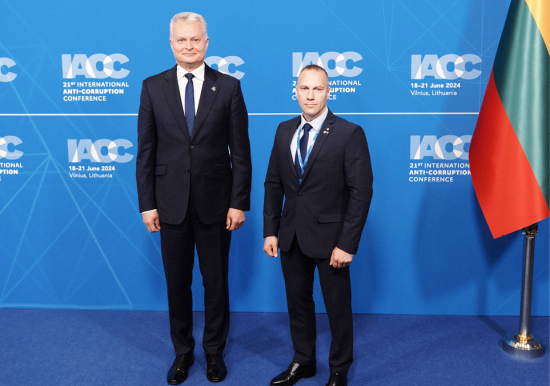
Public Service, Customer Service: A Conversation with Nicole Edwards-Francis, HR Manager at the Inland Revenue Service, Ministry of Finance, Antigua and Barbuda
Government services play an important role in citizens’ lives, and good service and communication are every bit as important in the public sector as in the private sector.
NICOLE EDWARDS-FRANCIS
HR Manager, Inland Revenue Service, Ministry of Finance, Antigua and Barbuda
It’s often said that human resources are the most important resource in any organisation. We need to ensure that our people are equipped with the tools and skills they need to perform well. Training plays a critical role, alongside policies to support the professional growth and development of civil servants. Twenty years ago, people were used to waiting a week or two weeks to receive services or benefits. In 2021, that is not the case, and employees play an important role in streamlining services.
Good HR systems are built based on a clear objective and purpose – for instance, a department may need to understand the demographics of its staff to conduct good leadership training and succession planning. Another organisation may need to fill gaps in core skill sets such as compliance and forensic auditing. When your HR systems work for you, you can stay on top of the game and not lag behind.
Customer service is key. Government services play an important role in citizens’ lives, and good service and communication are every bit as important in the public sector as in the private sector. Both the public and private sectors can learn from each other. My experience in the private sector has given me a keen sense of meeting customer needs. While working on pension matters, I streamlined some services from a paper-based system to an electronic one, which allowed the department to produce projections and serve the needs of our users better. Throughout my career, when a citizen visited my department to express displeasure over some delay or other matter, I would do my best to speak to that person, and at the end they would usually be satisfied. Being truthful and communicating proactively are very important in these situations.

I’ve worked across a range of human resource functions, in areas such as civil servant benefits, pensions, KPI management, training, and performance appraisal. I’m also managing health and safety issues. When COVID-19 hit, this meant implementing new safety protocols, procuring personal protection equipment, and ensuring the well-being of staff. It was a challenging but rewarding experience; we moved quickly and achieved a lot in the first two weeks. Reflecting on my career, good government is when we are able to use relevant information and evidence to make sound and effective decisions. For instance, if a government is reviewing the minimum pension, it should be looking at the cost of living, inflation, the minimum wage, and other indicators.
To young civil servants just starting out, think about what you hope to do and what you aspire to achieve in public service, then chart your path – find out what skills, experiences and knowledge you would need. Then stay the course, and work towards it. It may not be easy, but there is no reason you cannot succeed.
Practitioner Stories are told in the contributor’s own words, speaking in their individual capacity. Their inclusion in the CGGI website is not an endorsement of the CGGI 2021 methodology or results.
More Stories


Country Spotlight 2025 & Practitioner Story: Jamaica

